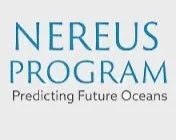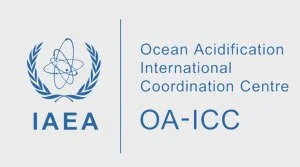THE FOLLOWING INSTITUTIONS PERFORM WORK COMPLEMENTARY TO OURS IN ORDER TO TACKLE THE DIFFERENT FACETS OF CLIMATE CHANGE.
GLOBAL OCEAN OXYGEN NETWORK
Oxygen is critical to the health of the planet. Climate change, agricultural runoff and human waste cause decreasing oxygen concentrations. Global and regional models project that the deoxygenation of marine waters will further worsen with continued increases in global temperatures and human population size, leading to widespread consequences for ocean health and ultimately human wellbeing. GO2NE is committed to providing a multidisciplinary view of this issue.
International Group for Marine Ecological Time Series
IGMETS is an advocate for highlighting the importance of continued marine sampling to inform biogeochemical and plankton time series data which are essential for studying and understanding marine ecosystems in our changing world.
SCOR Working Group 144 - Microbial Community Responses to Ocean Deoxygenation
Current research efforts are defining the interaction networks underlying microbial community metabolism and are rapidly generating new insights into coupled biogeochemical processes in the ocean. In addition, this SCOR working group is intending to overcome existing activation barriers and achieve cross-scale syntheses.
Integrated Marine Biogeochemistry and Ecosystem Research
IMBER is an international project that aims to investigate the sensitivity of marine biogeochemical cycles and ecosystems to global change, on time scales ranging from years to decades. IMBER aims to provide a comprehensive understanding and accurate predictive capacity for ocean responses to accelerating global change.
Nereus Program - Predicting Future Oceans
Nereus is an international, interdisciplinary collaboration between a number of research groups focused on understanding how climate change and other aspects of global change will affect fisheries throughout the 21st century.
The Global Ocean Acidification Observing Network
GOA-ON is a collaborative international approach to documenting the status and progress of ocean acidification in open-ocean, coastal, and estuarine environments, to understand the drivers and impacts of ocean acidification on marine ecosystems, and to provide spatially and temporally resolved biogeochemical data necessary to optimize modelling for ocean acidification.
Latin-American Ocean Acidification Network
The three first goals of the LAOCA Network are: (i) to synthesise the information about ocean acidification impacts in Latin-American, (ii) to encourage the implementation, maintenance, and calibration of long-term data on carbonate chemistry in Latin America, (iii) training of LAOCA members in the different action lines (e.g. observation, experimentation, and modelling).
Research Center Dynamics of High Latitude Marine Ecosystems (IDEAL)
Ideal is a multidisciplinary centre that was born to give answers to the challenges of global change in the southern seas. Our main goal is to measure and understand the impacts of environmental stressors caused by global change on the productivity of the marine ecosystems in the Antarctic and Subantarctic Regions, and the implications for the societies that depend on them.
Ocean-Certain
Ocean Certain is a project that has as its ultimate aim to create more certainty about our oceans during climate change. We are a broad group of scientists from Europe, Chile and Australia. We study both the ecosystem and biological pump and alongside the possible consequences of global change for society.
Ocean Acidification International Coordination Centre
The goal of the OA-ICC is to act as a hub to communicate, promote and facilitate international activities on ocean acidification. These are divided into three categories: science, capacity building, and communication. The target audience is not only scientists but any group or individual interested in ocean acidification, such as policy-makers, the media, schools and the general public. The OA-ICC brings together experts to discuss issues of relevance to the global ocean acidification community, organizes training courses, compiles and centralizes information, as well as provides a number of online resources.











